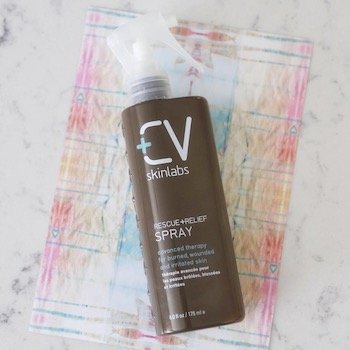
The summer weather brings opportunities to enjoy the outdoors, but it can also bring on new and bothersome skin concerns.
However you may choose to spend your summer days, you probably don’t want to be worried about your skin. Unfortunately, that beautiful summer weather can lead to increased breakouts, itchy rashes, dryness, and more if you’re not careful.
To keep your skin looking its best even in the heat, try our solutions to summer skin concerns below.
Why Does Summertime Increase Skin Concerns?
The rise in temperature that occurs in most areas during the summer months coupled with an increase in humidity can cause several unwanted changes in your skin.
- The sebaceous glands may become more active as your body sweats and cools itself off, leading to increased acne breakouts.
- Dry skin can become even drier when exposed to the sun.
- Melanin, the pigment in the skin, becomes more active as it seeks to protect the skin from UV rays, which can result in hyperpigmentation and age spots.
- Pollution and UV rays can expose the skin to damaging free radicals, which can rob it of its natural radiance and make it look dull and lackluster.
- Long-term unprotected exposure to the sun can increase the risk of skin cancer.
If your skin is reacting this way, realize that it’s just doing what it can to adapt to the warmer weather and everything that goes with it. Help it manage these elements with the following solutions.
Solutions for Four Summer Skin Concerns
Keep your skin looking clear and flawless by following these recommendations.
Skin Concern #1: Dry Skin
 Solution #1: Don’t Stop Moisturizing!
Solution #1: Don’t Stop Moisturizing!
If you have oily skin or even combination skin, you may be tempted to skip moisturization in the summer. This would be a mistake. All skin needs moisture. If you don’t hydrate your skin, it will react by producing even more skin oil (sebum), which can clog the pores and increase acne breakouts.
The key is balance. If you have very dry skin, your heavier cream moisturizer may work fine in the summer, but if your skin tends to be oily in places, swap your winter moisturizer for a lighter, summer option that will give your skin the hydration it needs without overdoing it.
If you’ve been using our Calming Moisture, you can just keep using it, as it works equally well during both seasons. But if you haven’t tried it, this is the time, as it’s a lightweight lotion that penetrates the skin to hydrate deeply without clogging pores.
Solution #2: Refresh & Hydrate Regularly
If you’re outdoors and the sun is beating down on you, your skin is likely to become parched pretty quickly, just like the rest of you. In addition to making sure that you’re drinking enough water (hydrate from the inside out), try taking a hydrating mist with you so you can give your skin a drink now and then too.
We recommend our Rescue + Relief Spray, which is full of natural ingredients that help cool and calm hot and inflamed skin. Simply spray on when you need it and it will leave your skin feeling fresh and radiant.
Skin Concern #2: Sensitive Skin
For many people, the summer weather makes their skin more sensitive. Those with rosacea, for example, may suffer more flare-ups in the summer, as may those with allergies or other sensitivities that can cause skin redness and rashes.
Solution #1: Tame Inflammation
If this sounds like you, step up your attempts to calm and heal your skin. Start by doing everything you can to tame inflammation. Use only gentle, fragrance-free products that avoid harsh sulfates, petrolatum products, and harsh preservatives. Eat more fruits and vegetables, as they can help calm inflammation from the inside out.
Next, look for anti-inflammatory skincare products. We recommend all of our CV Skinlabs products because they all contain the unique Tri-Rescue Complex, which includes the powerful anti-inflammatory turmeric. All of them also contain aloe vera, which helps soothe and heal skin’s outer barrier, as well as natural oils to help moisturize and promote skin repair.
Solution #2: Protect from the Sun
Use hats, clothing, umbrellas, and other items to protect your skin from the sun—it will help reduce the risk of redness and reactions. Use a sunscreen with zinc oxide or titanium dioxide.
Skin Concern #3: Acne Breakouts
Solution #1: Avoid High-Sugar Foods
Studies have linked a diet full of high-glycemic foods—those that break down quickly in the body and spike blood sugar levels—to increased acne breakouts. Choose more complex carbohydrates (whole grains), fruits and veggies, and lean proteins to help your skin stay healthy.
Solution #2: Stick to a Consistent Skin Care Regimen
Summertime makes us feel more like playing than taking care of our skin. Try to stick to your regular routine of cleansing, toning, and moisturizing every day to keep excess oil under control. Never go to bed without washing and moisturizing your face.
Solution #3: Mask More
We’re not talking about Covid masks, but healthy skin masks that can help treat reactive skin. If you’re oily, choose a clay or charcoal mask to help soak up excess oil. If you’re combination, use a moisturizing mask once a week and a clay or charcoal mask at some other point during the week. Let your skin show you what it needs.
Skin Concern #4: Hyperpigmentation
The sun triggers melanin production in the skin, and that can cause those patchy areas of darker skin as well as age spots and other dark areas.
 Solution #1: Protect from the Sun
Solution #1: Protect from the Sun
As mentioned above, protect your skin from the sun. Pay particular attention to those areas that you’re trying to lighten or brighten.
Any product you use to fade dark areas will make your skin more sensitive to the sun, meaning they can make your skin worse if you don’t protect it.
Use clothes, umbrellas, zinc oxide, and titanium dioxide. (Check out the Environmental Working Group’s sunscreen guide.)
Solution #2: Use Lightening Products
Several lightening skin care products can help fade dark areas and reveal lighter, brighter skin. Some good options include vitamin C, acids (azelaic, kojic, glycolic, lactic, retinoic), and arbutin.
Solution #3: Exfoliate Regularly
As long as your skin will tolerate it, consider stepping up your exfoliation. That can get rid of the darker, older skin cells on the surface of the skin and reveal younger, hopefully, lighter-looking skin cells underneath.
How do you manage skin concerns in the summertime?

